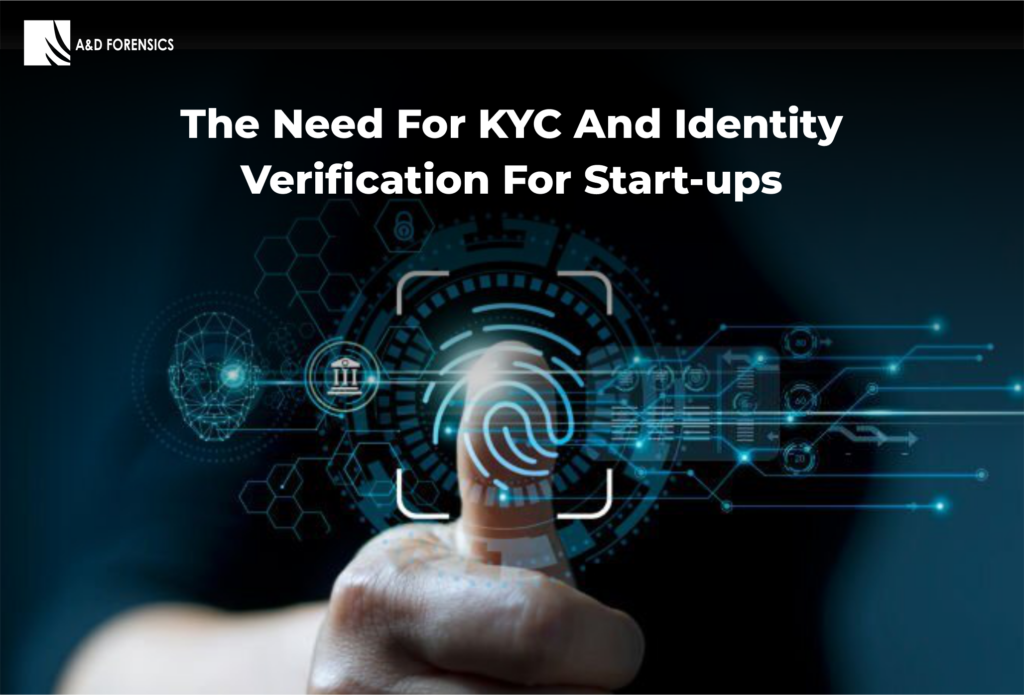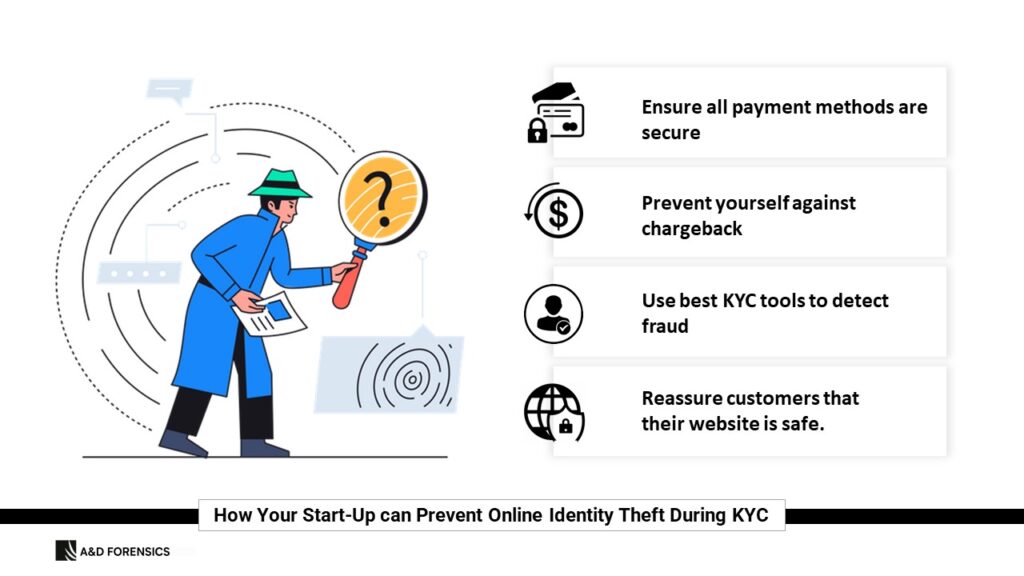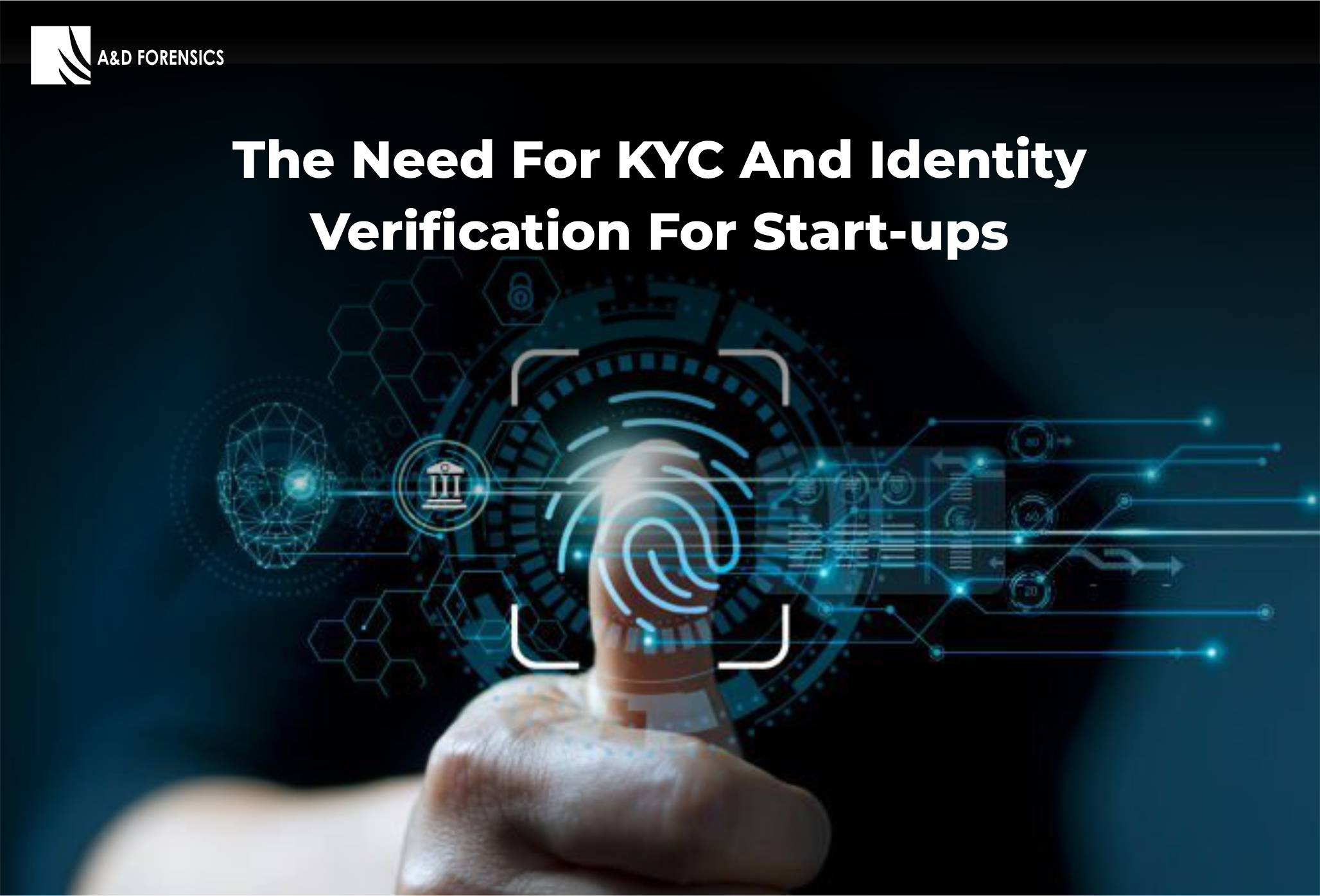The need for start-ups to carry out KYC and identity verification is of high importance. This is because start-ups such as cryptocurrency exchanges or Virtual Asset Service Providers (VASPs) are easily attracted to bad actors. Hence, KYC verification puts bad actors off a VASP.
The Need For KYC and Identity Verification For Start-ups

In this sense, early implementation of KYC and identity verification will enable start-ups to easily recognize their customers and understand the nature of the business in which their customers are involved.
KYC and AML Frameworks: Who Needs To Comply With KYC?
Anti-Money Laundering (AML) is a complex framework of strategies, rules, and regulations to combat money laundering, terrorism funding and identity fraud while Know-Your-Customer (KYC) framework only identifies and authenticates the identity of the customer of a financial institution based on their perceived risk profile.
A startup/financial institution AML policy should comply to it’s domestic AML regulations which usually include these processes:
- KYC procedure: Customer Due Diligence (CDD) and Enhance Due Diligence (EDD).
- Risk based anti-money laundering policies
- Ongoing risk assessment and monitoring
- AML Compliance training for company staff
- Internal Audits and Controls.
Moreover, this month, a tweet came from the CEO of Binance exchange, Changpeng Zhou, which struck a warning note with the hashtag SAFU (Secret Asset Fund for Users). Saying “the exchange has been able to freeze $450k of the Curve stolen fund, and mentioned that the hackers will be caught for the act”. Hence protecting its exchange from high-risk and staying compliant while having a good KYC/AML framework.
What is KYC and Identity Verification?
KYC (Know Your Customer or Client) is the mandatory process of verifying the identity of new customers, to verify who they say they are before giving them access to the services they need.
On the other hand, Identity verification is the process of confirming or refuting that a claimed identity is correct by comparing the credentials with the identity of the real person. This can be done by using customers’ face biometric or ID documents with their verified data set.
Who are Start-ups?
Start-ups as the name implies refers to young companies established by one or two entrepreneurs, whose aim is to create a unique product or service that is irresistible in the market.
What Does Your Start-up Need for Effective KYC and Identity Verification?
An effective KYC and Identity verification protects your start-up from high costs of compliance penalties and reputational damage, as well as the individual customer from getting attacked by any illicit activity.
Therefore, Your start-up needs the following from your clients to carry out an effective KYC and Identity Verification for them:
Identity documents
- Photo ID document issued by government
- Driver’s License
- Passport
- Voter Identification card
- Social Security Number
- Permanent Account Number (PAN) card
Proof of Address
- Utility bill
- Recent bank statement
- Rental agreement.
Why Your Start-up Need to Perform KYC on Customers
Your start-up needs to perform KYC and verify customers identity for the following reasons:
1. To improve security and get rid of fraudsters
2. To ensure sound business practices and offer insightful data on customers.
3. To serve as a line of defence against financial crime such as money laundering (ML) and terrorist financing (TL).
4. To protect your business from high costs of compliance penalties and reputational damage.
5. To mitigate the risk of anonymity in the transaction as well as client facing phase.

How Your Start-up Can Prevent Online Identity Theft During KYC
Start-ups should endeavor to use the following tips to prevent online identity theft in KYC:
- Make sure all payment methods are secure
- Prevent yourself against chargeback
- Use best KYC tools to detect fraud
- Use a third party document verification software
- Reassure customers that your website is safe
- Use AVS (address verification system) codes.
CONCLUSION
As start-ups penetrate the African market at large, the need to perform KYC and verify customers identity becomes crucial. Therefore, no matter what the business domain is, every virtual enterprise needs to maintain an effective compliance KYC (Know Your Customer) onboarding process to prevent illicit activity.
A&D Forensics offer Compliance as a Service (CaaS) solution to ensure compliance for start-ups and VASPs. This solution provides an effective KYC tool which assist in minimizing business exposure to risk and also increase customer due diligence.
Contact us today for further enquiries and solutions.
Contributor: Loveth Odije






